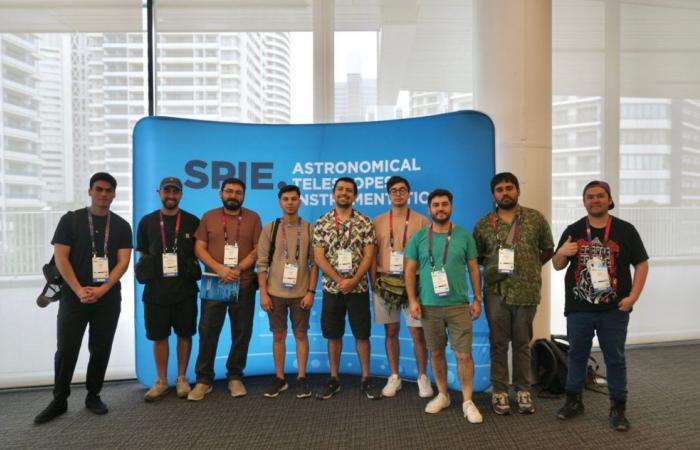Five researchers who are part of the Optoelectronics Laboratory (Optolab) of the Pontificia Universidad Católica de Valparaíso will present their work at the most important conference on astronomical instrumentation: SPIE Astronomical Telescopes + Instrumentation.
From June 16 to 21, Benjamín González, Nicolás Hernández, Bastián Romero, Jorge Tapia and Camilo Weinberger will represent our country, presenting their research in astronomical instrumentation.
In addition, four other members of the laboratory, undergraduate and graduate, will attend the conference, having the opportunity to participate in talks, learn about innovations in the area and talk with other researchers, opening the possibility of collaborating in the future.
The international event organized by SPIE, the International Society of Optics and Photonics, brings together scientists, engineers and professionals from the field of astronomy, telescopes and all types of space instrumentation every two years, covering topics such as adaptive optics.
This subdiscipline of optics is one of Optolab’s main areas of research and seeks to counteract the effects of the atmosphere on the transmission of light and when observing the cosmos, allowing for more precise vision and also the capture of sharper and brighter images. detailed.
Professor Esteban Vera, director of the laboratory, comments that the majority of attendees at this type of conferences related to instrumentation work or are linked to astronomical observatories, while the participation of university representatives is usually limited.
“That we can go in a large group is a tremendous opportunity to show the potential of the human capital that we have in Chile and make known that we are capable of developing technology for current astronomical projects and those to come, such as those of the ELT generation. ”Adds Vera.
The applications of the projects that Optolab researchers will present are related to the implementation of instruments in optical systems and methodologies developed to improve the adaptive optics of this new generation of giant telescopes, called Extremely Large Telescopes (ELTs), which are under construction in the north of our country.






